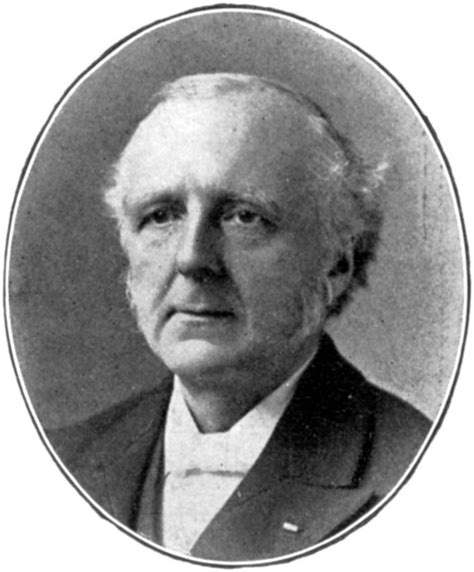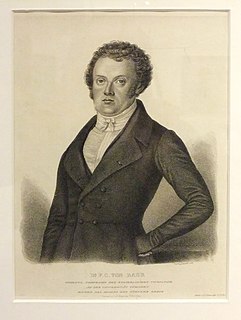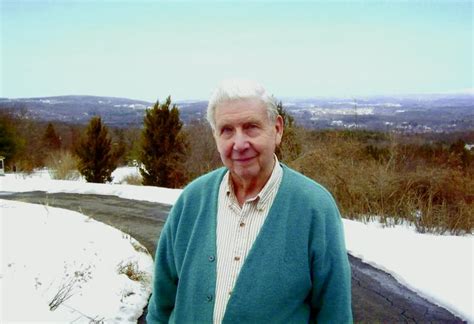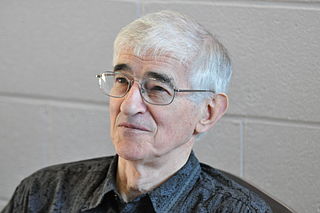A Quote by Albert Schweitzer
The study of the Life of Jesus has had a curious history. It set out in quest of the historical Jesus, believing that when it had found Him it could bring Him straight into our time as a Teacher and Saviour. ... But He does not stay; He passes by our time and returns to His own... He returned to His own time, not owing to the application of any historical ingenuity, but by the same inevitable necessity by which the liberated pendulum returns to its original position.
Quote Topics
Any
Application
Believing
Bring
Could
Curious
Does
Found
Had
Him
His
Historical
Historical Jesus
History
Inevitable
Ingenuity
Jesus
Liberated
Life
Necessity
Original
Our
Our Time
Out
Owing
Own
Passes
Pendulum
Position
Quest
Returned
Returns
Same
Saviour
Set
Stay
Straight
Study
Teacher
Time
Us History
Which
Related Quotes
Our reasons for believing Jesus existed and also that He was who He claimed to be - the God who came down - are the same reasons for believing any fact of history: the documentation is substantial and it passes all the tests of historical reliability. Scholars - both liberal and conservative - overwhelming agree that Jesus of Nazareth was a man of history and the Gospels, on the main, tell His story accurately.
Like every man who appears at an epoch which is historical and rendered famous by his works, Jesus Christ has a history, a history which the church and the world possess, and which, surrounded by countless memorials, has at least the same authenticity as any other history formed in the same countries, amidst the same peoples and in the same times. As, then, if I would study the lives of Brutus and Cassius, I should calmly open Plutarch, I open the Gospel to study Jesus Christ, and I do so with the same composure.
Because of his sinless life, Jesus walked in perfect dominion. God did whatever he asked, NOT because he was God's son, but because he held the position of a righteous man. But that was Jesus, you say. But the Bible says that through our believing on Him, we have been given the same position of righteousness with God that Jesus has.
Notice carefully every word here. It is not our prayer which draws Jesus into our hearts. Nor is it our prayer which moves Jesus to come in to us. All He needs is access. He enters in of His own accord, because He desires to come in. To pray is nothing more involved than to let Jesus into our needs, and permitting Him to exercise His own power in dealing with them. And that requires no strength. It is only a question of our wills. Will we give Jesus access to our needs?.
Jesus Christ has bought us with His blood, but, alas, He has not had His money's worth! He paid for ALL, and He has had but a fragment of our energy, time and earnings. By an act of consecration, let us ask Him to forgive the robbery of the past, and let us profess our desire to be henceforth utterly and only for Him- His slaves, owning no master other than Himself.
What kind of authority can there be for an 'Apostle' who, unlike the other Apostles, had never been prepared for the Apostolic office in Jesus' own school but had only later dared to claim the Apostolic office on the basis of his own authority? The only question comes to be how the apostle Paul appears in his Epistles to be so indifferent to the historical facts of the life of Jesus....He bears himself but little like a disciple who has received the doctrines and the principles which he preaches from the Master whose name he bears.
We have endless books about whether Jesus existed, or whether the Jesus we have learned about is really accurate and historical or mythical. We have endless complicated tracts on fine technical issues, but we don't explore Jesus' way to happiness and peace, or try to understand his feelings about God and creation of how he views our relationship with God, or his attitude toward human weakness. Understanding these things could help us immensely in our own search for inner peace and a meaning to life.
Christmas is a time for remembering the Son of God and renewing our determination to take upon us His name. It is a time to reassess our lives and examine our thoughts, feelings, and actions. Let this be a time of remembrance, of gratitude, and a time of forgiveness. Let it be a time to ponder the Atonement of Jesus Christ and its meaning for each of us personally. Let it especially be a time of renewal and recommitment to live by the word of God and to obey His commandments. By doing this, we honor Him far more than we ever could with lights, gifts, or parties.
Jesus' death by crucifixion under Pontius Pilate is as sure as anything historical can ever be. For if no follower of Jesus had written anything for one hundred years after his crucifixition, we would still know about him from two authors not among his supporters. Their names are Flavius Josephus and Cornelius Tacitus.
A Heavenly Master governs all the world as Sovereign of the universe. We are astonished at Him by reason of His perfection, we honor Him and fall down before Him because of His unlimited power. From blind physical necessity, which is always and everywhere the same, no variety adhering to time and place could evolve, and all variety of created objects which represent order and life in the universe could happen only by the willful reasoning of its original Creator, Whom I call the Lord God.
Jesus is the prime exemplar of life in God's presence. He lived out of an awareness of the identity God had given him, not the identity the world wanted to give him; he led an active, ongoing prayer life; he took time apart from the world to be with his Father; he made his Father's agenda his agenda; he made his Father's love for people evident in tangible ways; and so on. These are all characteristics that we should emulate in our lives.
There were times when it appeared to Dorian Gray that the whole of history was merely the record of his own life, not as he had lived it in act and circumstand, but as his imagination had created it for him, as it had been in his brain and in his passions. He felt that he had known them all, those strange terrible figures that had passed across the stage of the world and made sin so marvellous, and evil so full of subtlety. It seemed to him that in some mysterious way their lives had been his own.
Have you ever noticed that Jesus is never recorded as taking a holiday? He retired for the purposes of his mission, not from it. He was never destroyed by his work; he was always on top of it. He moved among people as the master of every situation. He was busier than anyone; the multitudes were always at him, yet he had time, for everything and everyone. He was never hurried, or harassed, or too busy. He had complete supremacy over time; he never let it dictate to him. He talked of my time; my hour. He knew exactly when the moment had come for doing something and when it had not.






































